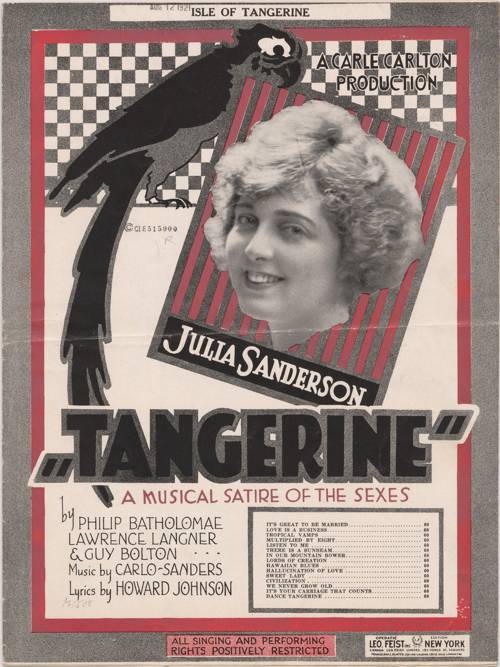
FAQ About The Role of Musical Satire in Cultural Commentary

What is musical satire?
Musical satire is a genre of music that uses humor, irony, and exaggeration to criticize or comment on current social, political, and cultural issues. It often seeks to entertain while simultaneously provoking thought and reflection on the topics it addresses.

How does musical satire differ from other forms of satire?
Musical satire uniquely combines melody, rhythm, and lyrical content to enhance its satirical impact. Unlike traditional satirical writing or visual satire, musical satire can use musical elements such as tone, tempo, and instrumentation to reinforce the comedic or critical message.

What are some examples of famous musical satirists?
Some well-known musical satirists include "Weird Al" Yankovic, whose parody songs critique popular culture, and Tom Lehrer, whose work often tackled social and political issues of his time. More recently, groups like The Lonely Island and artists like Bo Burnham have gained popularity for their satirical musical performances.

How does musical satire influence public perception?
Musical satire can shape public perception by highlighting absurdities and critiquing societal norms in an accessible and entertaining manner. It can simplify complex issues, making them more understandable and engaging for a wider audience, thus influencing opinions and sparking discussions.

Can musical satire lead to social change?
While musical satire alone rarely leads to social change, it can contribute to larger movements by raising awareness, challenging the status quo, and inspiring dialogue. It can be a powerful tool in mobilizing public sentiment and encouraging activism around social and political issues.

What role does humor play in musical satire?
Humor is a central element in musical satire, serving to engage the audience and make the critique more palatable. By presenting serious topics in a humorous light, satire can bypass defensive attitudes and provoke thought without antagonizing listeners.

Why is musical satire important in cultural commentary?
Musical satire is important because it provides a unique lens through which cultural and societal issues can be examined. It uses wit and music to question authority, expose hypocrisy, and offer new perspectives that might be less effectively communicated through other forms of commentary.

What is the historical origin of musical satire?
Musical satire has historical roots that extend back to ancient times, with examples from Greek theater and medieval minstrel performances. Through various cultural revolutions, satire has evolved to address contemporary issues, addressing power structures and societal norms through music.

How does musical satire engage its audience?
Musical satire engages its audience through catchy tunes, relatable themes, and clever humor. It often relies on parody, exaggeration, and sharp wit to draw listeners in, create memorable experiences, and prompt critical thinking about the subject matter.

What techniques are commonly used in musical satire?
Common techniques in musical satire include parody, wordplay, irony, and juxtaposition. Artists might mimic popular musical styles or specific songs to critique them effectively, using familiar sounds to catch the audience's attention while altering lyrics to convey a satirical message.

What are some contemporary issues addressed by musical satire?
Contemporary issues frequently addressed by musical satire include politics, consumer culture, social media, environmental concerns, and celebrity culture. Artists use satire to question and critique these subjects, often reflecting current societal debates and dilemmas.

How is parody used in musical satire?
In musical satire, parody is used to imitate the style of a particular song or genre, while altering its lyrics and context to comment humorously on its subject. This technique highlights contradictions, absurdities, or shortcomings in the original, making the audience reevaluate the topic.

What are the limitations of musical satire in cultural commentary?
One limitation of musical satire is that it can be misinterpreted by audiences, potentially undermining its intended message. Additionally, because it relies on humor, it might not be taken seriously by all listeners, which can reduce its impact on cultural commentary.

How does musical satire reflect societal values?
Musical satire reflects societal values by highlighting what is laughable, absurd, or in conflict with perceived norms and standards. Through its critiques, it reveals underlying beliefs and tensions, offering a mirror to societal dynamics and prompting audiences to question established values.

How does musical satire handle sensitive topics?
Musical satire approaches sensitive topics with a blend of humor, irony, and empathy, aiming to provoke thought without causing undue offense. It often walks a fine line between challenging audiences and being perceived as distasteful, requiring sensitivity and skill in execution.

What impact does musical satire have on political discourse?
Musical satire can impact political discourse by bringing issues to the forefront in a manner that is accessible and engaging. It can spark discussions, influence public opinion, and encourage critical examination of political policies and leaders, sometimes reaching audiences traditional media cannot.

Why do artists choose musical satire to express their critiques?
Artists choose musical satire because it combines the broad reach of music with the incisive nature of satire, allowing them to entertain and engage while critiquing societal issues. This format can attract diverse audiences and communicate messages in powerful, memorable ways.

What are some challenges artists face when creating musical satire?
Artists creating musical satire may face challenges such as striking the right balance between humor and critique, ensuring cultural sensitivity, and overcoming potential backlash for controversial topics. Creatively engaging audiences while conveying a clear message can also be demanding.

How does musical satire use exaggeration effectively?
Musical satire uses exaggeration to amplify the flaws or contradictions in its subject, making them more noticeable and provoking laughter. This technique employs hyperbole to challenge perceptions and encourage audiences to consider the ridiculousness or seriousness of issues being satirized.

Can musical satire be part of popular music culture?
Yes, musical satire can be part of popular music culture, as evidenced by artists like "Weird Al" Yankovic and satirical songs that gain mainstream popularity. These works blend entertainment with critique, often achieving broad appeal while delivering poignant cultural commentary.
